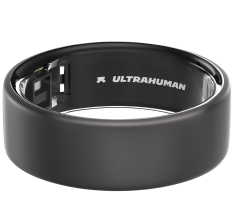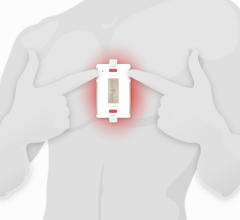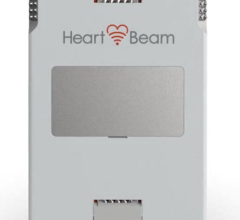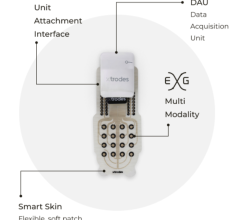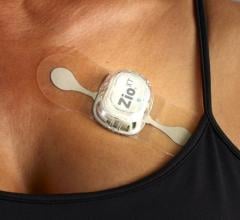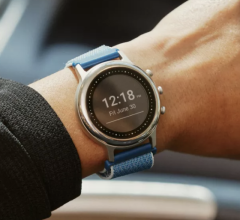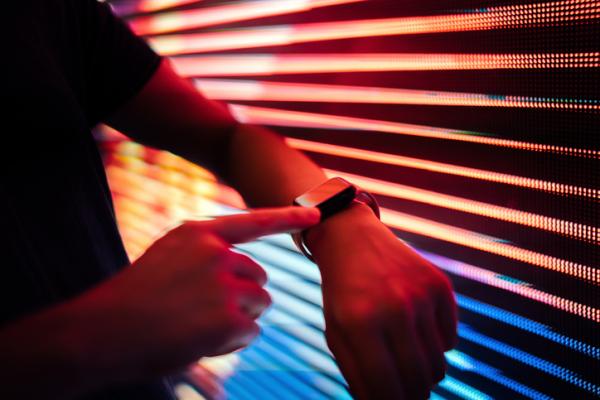
Getty Images
November 16, 2022 — A study published in Nature Medicine reports the ability of a smartwatch ECG to accurately detect heart failure in nonclinical environments. Researchers at Mayo Clinic applied artificial intelligence (AI) to Apple Watch ECG recordings to identify patients with a weak heart pump. Participants in the study recorded their smartwatch ECGs remotely whenever they wanted, from wherever they were. Periodically, they uploaded the ECGs to their electronic health records automatically and securely via a smartphone app developed by Mayo Clinic’s Center for Digital Health.
"Currently, we diagnose ventricular dysfunction ― a weak heart pump ― through an echocardiogram, CT scan or an MRI, but these are expensive, time consuming and at times inaccessible. The ability to diagnose a weak heart pump remotely, from an ECG that a person records using a consumer device, such as a smartwatch, allows a timely identification of this potentially life-threatening disease at massive scale," says Paul Friedman, M.D., chair of the Department of Cardiovascular Medicine at Mayo Clinic in Rochester. Dr. Friedman is the senior author of the study.
People with a weak heart pump might not have symptoms, but this common form of heart disease affects about 2% of the population and 9% of people over 60. When the heart cannot pump enough oxygen-rich blood, symptoms may develop, including shortness of breath, a rapid heart rate and swelling in the legs. Early diagnosis is important because once identified, there are numerous treatments to improve quality of life and decrease the risks of heart failure and death.
Mayo researchers interpreted Apple Watch single-lead ECGs by modifying an earlier algorithm developed for 12-lead ECGs that is proven to detect a weak heart pump. The 12-lead algorithm for low ventricular ejection fraction is licensed to Anumana Inc., an AI-driven health technology company, co-created by nference and Mayo Clinic.
While the data are early, the modified AI algorithm using single-lead ECG data had an area under the curve of 0.88 to detect a weak heart pump. By comparison, this measure of accuracy is as good as or slightly better than a medical treadmill diagnostic test.
"These data are encouraging because they show that digital tools allow convenient, inexpensive, scalable screening for important conditions. Through technology, we can remotely gather useful information about a patient's heart in an accessible way that can meet the needs of people where they are," says Zachi Attia, Ph.D., the lead AI scientist in the Department of Cardiovascular Medicine at Mayo Clinic. Dr. Attia is first author of the study.
"Building the capability to ingest data from wearable consumer electronics and provide analytic capabilities to prevent disease or improve health remotely in the manner demonstrated by this study can revolutionize health care. Solutions like this not only enable prediction and prevention of problems, but also will eventually help diminish health disparities and the burden on health systems and clinicians," says Bradley Leibovich, M.D., the medical director for the Mayo Clinic Center for Digital Health, and co-author on the study.
All 2,454 study participants were Mayo Clinic patients from across the U.S. and 11 countries. They downloaded an app created by the Mayo Clinic Center for Digital Health to securely upload their Apple Watch ECGs to their electronic health records. Participants logged more than 125,000 previous and new Apple Watch ECGs to their electronic health records between August 2021 and February 2022. Clinicians had access to view all the ECG data on an AI dashboard built into the electronic health record, including the day and time it was recorded.
Approximately 420 participants had an echocardiogram ― a standard test using sound waves to produce images of the heart ― within 30 days of logging an Apple Watch ECG in the app. Of those, 16 patients had low ejection fraction confirmed by the echocardiogram, which provided a comparison for accuracy.
This study was funded by Mayo Clinic with no technical or financial support from Apple. Drs. Attia and Friedman, along with others, are co-inventors of the low ejection fraction algorithm licensed to Anumana and may benefit from its commercialization.
For more information: https://www.mayoclinic.org/
Related Wearable ECG Monitoring Content:
How Advances in Wearable Cardiac Monitors Improve the Patient and Clinician Experience
Cardea Solo Wearable ECG Collects High-altitude Cardiac Data on Denali Expedition
Cardiac Insight Partners With VivoSense for Cardiovascular Research
Wearable Cardiac Monitors Are Effective for Tracking Atrial Fibrillation Following Ablation
As Interpretation Criteria Evolve, False Positive Athlete ECG Screening Rates Can Decrease


 January 14, 2026
January 14, 2026 



